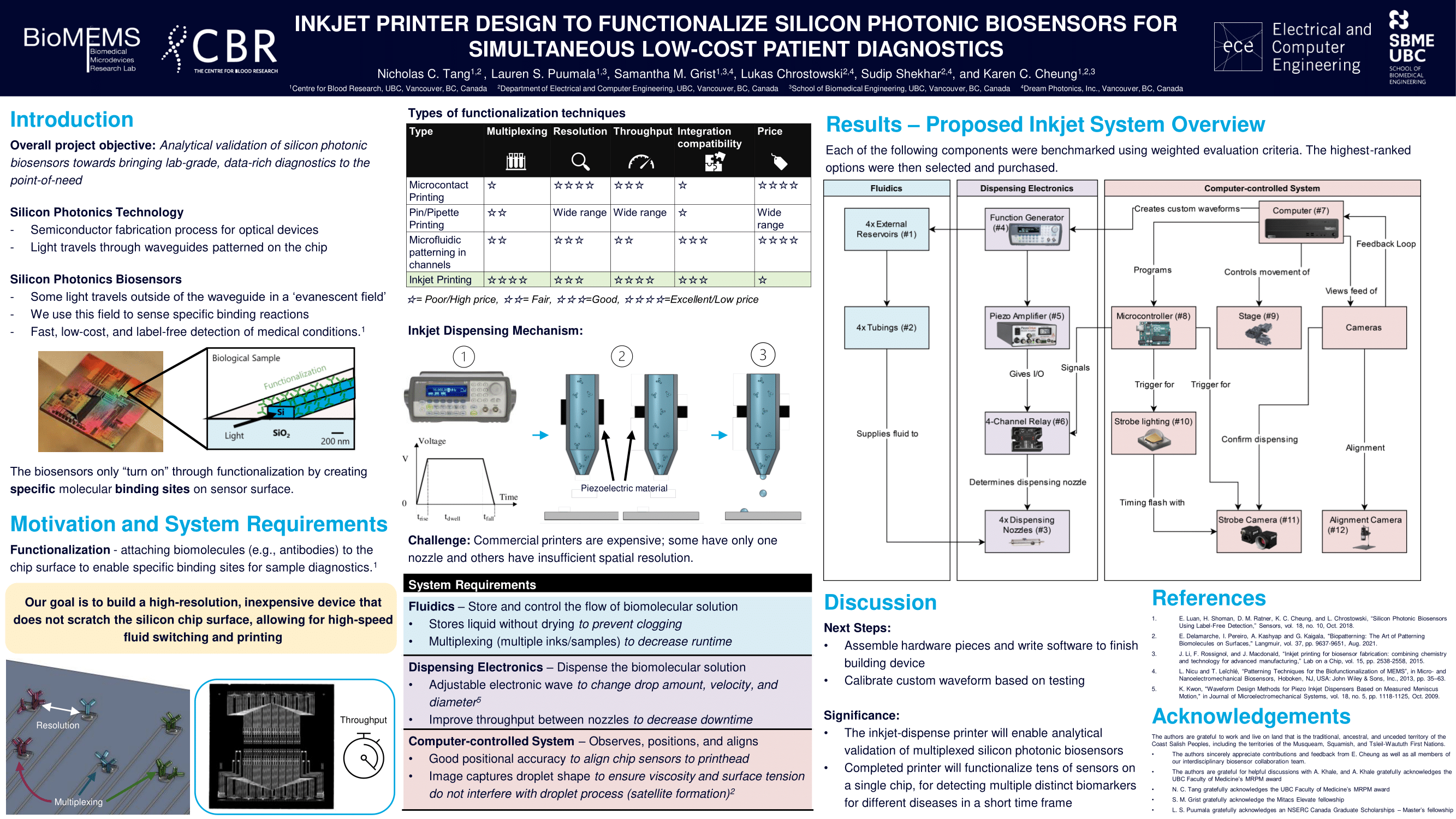Background Info
In modern medicine, there is a need for point-of-care diagnostics when central lab facilities are unavailable or too far for feasible deliveries. To alleviate this need, silicon photonic biosensors bring lab-grade, data-rich diagnostics to the point-of-need but require analytical validation.
Poster

Contribution
My role was to present a printer design optimized for biosensor functionalization that dispenses four separate “inks” through four nozzles to rapidly functionalize multiplexed sensors on silicon photonic chips. It also included the literature, benchmarking, design, documentation, and purchase of electronic and mechanical components, even if the printer was not completed within the timeframe.
Significance
Since the completed printer will be able to do simultaneous sensing, it will drastically reduce the time of experimentation from a manual process of individual functionalization to a process that can automate the dispensing process quickly and efficiently. These experiments on silicon photonic chips are crucial due to its potential in medical diagnostics. Indeed, the field of biosensors improves on deficiencies caused by the need to evaluate conditions within centralized lab locations rather than direct-to-consumer products. This can cause problems especially in rural regions where transportation is difficult and lengthy travel times alter the sample initially obtained from the patient. With silicon photonics, compact designs coupled with low cost allow for easy access by the general public once the technology is more mature. This project works towards that goal of future commercialization of silicon photonic biosensors as an alternative to traditional medical diagnostics.